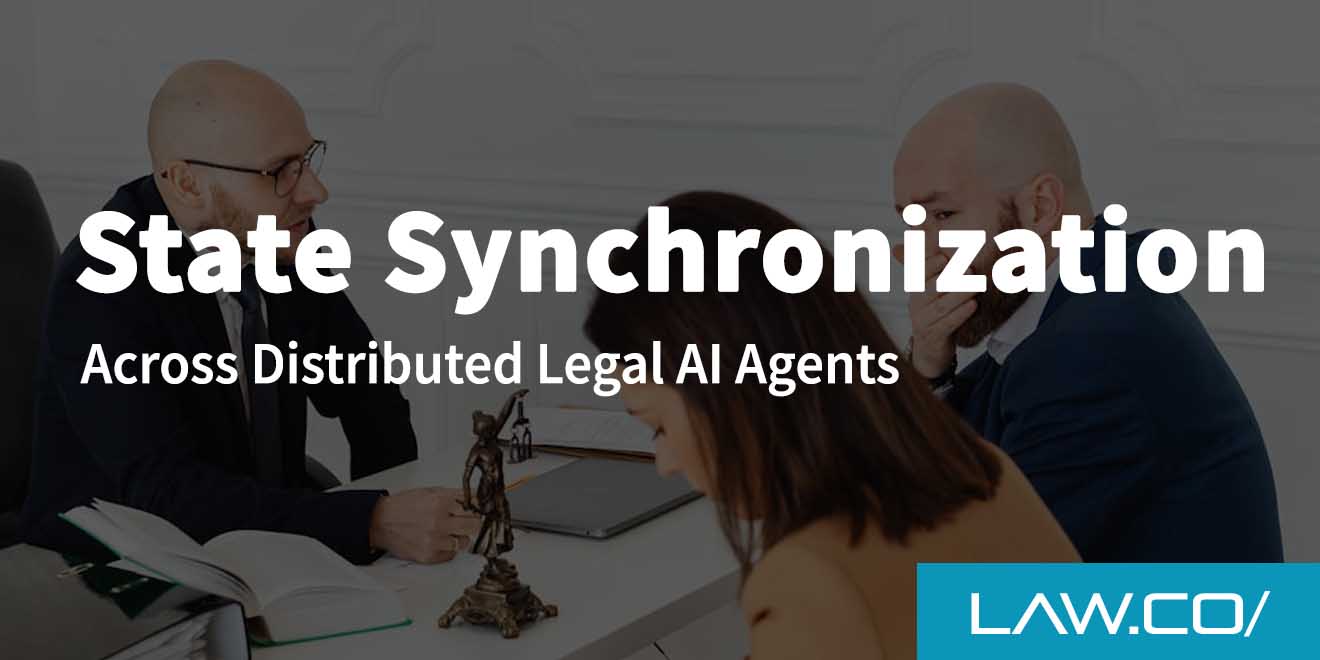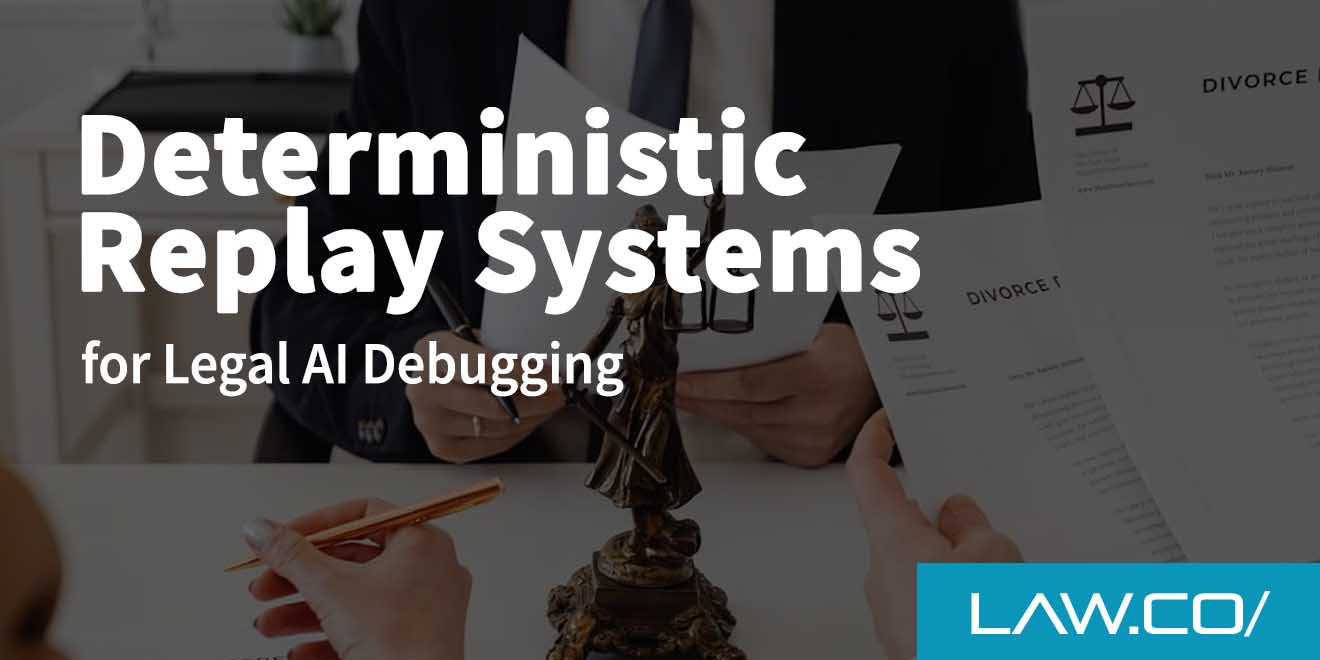

The Best CRM Software for Law Firms and Lawyers: How to Choose
Have you ever gotten one of your clients confused with another?
Have you ever forgotten to follow up with a client you said you would call in the future?
Have you ever struggled to remember the name of a prospect, or lost a prospect’s contact information?
A customer relationship management (CRM) platform can prevent most of these mishaps, in addition to streamlining efficiency and productivity within your organization.
In case you aren’t familiar, a CRM platform is designed to centralize all information and tasks related to customer relationships. Depending on the platform, it usually comes with features like lead management, intake and onboarding, customer information management, communication management, workflow automation, and even analytics.
Why is CRM software so valuable for law firms and lawyers?
Which CRM platforms are best for law firms and lawyers?
And how should you make the final decision for your law firm?
The Importance of CRM Software for Lawyers and Law Firms

CRM software platforms are valuable for lawyers in many different ways:
- Better client relationships. The big picture benefit here is that CRM platforms, when used properly, can lead to better client relationships. You'll have much more consistent and reliable access to customer information. You'll be able to streamline communication and automate follow-ups. You'll even be able to give your customers access to a direct portal in some situations. The end result is that your customers are going to be happier, much less likely to leave, and much more likely to give you referrals.
- A single source of truth (SSOT). When you're working with many different people, it's easy for discrepancies to arise. But because your CRM platform is centralized and accessible to everyone, it functions as a single source of truth (SSOT), preventing or eliminating nearly any conceivable point of confusion. If there’s ever a conflict of memory between two individuals, you can turn to the CRM to settle the dispute.
- Cloud access. Most modern CRM platforms are cloud-based, meaning you'll have access to them from any device, and in any location, provided you have an internet connection. In fact, many CRM platforms come with a mobile app that makes it easy to update customer profiles on the go or make and record phone calls.
- Automation. These days, CRM platforms typically come with at least some automation features, such as automated scheduling, follow-up reminders, and workflow executions. Automation is ideal for minimizing errors, reducing manual hours spent on various tasks, and improving consistency. It can even help you keep a leaner staff, focusing only on the roles and responsibilities you truly need within your law firm.
- Scaling. You might have a small law firm now, but what if you want to grow into a larger, more powerful firm in the future? Most CRM platforms are inherently designed to be scalable, so you can start with a small plan and a handful of users, but use the same system as you grow to a larger firm with more people and more complex needs. Sometimes, you can start for free with one or a small handful of users, then graduate to a paid plan when your law firm hits a certain threshold of users and/or clients.
- Reporting and analytics. Through your CRM, you'll also be able to access objective reporting and analytics. You can use all the data you gather to learn more about your customers as well as how you manage them, so you can continue improving your law firm and building better relationships.
The Best CRM Software Options for a Law Firm
These are some of the best CRM software options for law firms today:
- Salesforce. Salesforce has been the leading CRM since its inception, though it’s not designed specifically to serve lawyers and law firms. It has almost every feature you could possibly want, and you can customize it to be as minimalistic or as saturated with features as you want; it’s also excellent for scaling. Contact management, quote management, and lead management are just the beginning. The real downsides are cost and complexity; this is an expensive and potentially time-consuming platform that isn’t a great match for all law firms.
- Law Ruler. Law Ruler is, as the name implies, designed specifically for law firms, which has advantages in the CRM world. Ideal for growing law firms, Law Ruler has tons of email templates, built-in call tracking and recording, easy appointment scheduling, calendar syncing across your team, and all the staple features you’d expect from a CRM. API access also makes integrations easy.
- HubSpot. One of the most prominent names in the CRM world is HubSpot; you may recognize it for its entire suite of products, including marketing and sales automation platforms. HubSpot’s CRM has both free and paid options, with far more features in the paid plan (naturally). Some of the highlights include excellent customer support, full email tracking, easy integrations with marketing and sales software, and practically unlimited customization potential. It’s great for small firms, but can be modified and expanded for large firms as well.
- Captorra. Capable of functioning independently or integrating directly with your other legal software, Captorra is a CRM platform that specializes in serving personal injury lawyers. While it offers some flexibility, lawyers of other specialties and disciplines would be better served with other tools. That said, Captorra does offer great email templates, automated workflows, eSignatures, and even a dedicated client portal.
- InterAction+. Interaction+ by LexisNexis is a good CRM choice for almost any size law firm (including solo practitioners and mega firms alike). It can easily gather and consolidate client information, while allowing you to track the client journey from start to finish. It also integrates and synchronizes with tools like Microsoft Outlook and offers excellent workflow automation options. Plus, it’s ridiculously easy to start using.
- Lawmatics. Lawmatics is another CRM designed specifically with the legal industry in mind. With it, you’ll find not only CRM features, but also marketing automation features for generating leads. It can help you schedule, store files, set automatic reminders, create custom forms, and even text your clients directly. It’s also superbly designed, so it’s easy to get started – even if you’ve never used a CRM platform before.
- Zoho. A generalist cloud CRM platform, Zoho has most of the features your law firm wants, including contact management, workflow automation, and more. There are a few weaknesses, including slightly unreliable customer support and some isolated complaints about usability. However, it’s free for up to three users – which could make it ideal for a solo practice or a small law firm.
- Intapp. Highly customizable and flexible, Intapp is an excellent option if you’re picky about how you want your CRM platform to operate. It can be tailored to your specifications, giving you all the features you need (with none of the fluff), and offers convenient communication, client interest gauging tools, and even marketing support. However, there’s a bit of a learning curve and time commitment involved, so it’s not right for every lawyer.
Key Considerations for Lawyers Choosing a CRM Software Platform
Obviously, we've presented a lot of options, and there are even more options available if you're willing to search for them. Among these, there is no platform we can possibly consider the “best,” because different law firms and lawyers have different needs.
In the course of making your CRM software platform decision, keep these potential priorities in mind:
- Industry specificity. It's perfectly fine for a law firm or solo lawyer to use a generalized CRM that wasn't designed for the legal industry. However, you may have a preference for a CRM platform designed for the legal world, as it may have unique features related to case management, intake, or practice management. You may even want a CRM platform designed for your specific discipline within the legal field. It all depends on what features you want and how many different platforms you're willing to integrate into your tech stack.
- Core features. You'll also need to think about the core features available within the platform. Most CRM platforms share all the basics, like storing and consolidating customer information, tracking communication, and automating simple workflows. But if you want more advanced features, or if there's a specific combination of features that you need, some CRM platforms may not be a good fit.
- Usability and design. While it may seem like a superficial or purely aesthetic consideration, it's important to think about overall usability and design. How easy is it to use this platform? How intuitive is it to learn? Simple, straightforward platforms will save you time and make it easier to train new people.
- Security. As a lawyer, security and privacy are top concerns when running your practice. Accordingly, you'll need to evaluate the privacy and security standards of a CRM platform before you decide to move forward with it.
- Onboarding and training. If you're going to teach someone else how to use this platform, whether it's an employee or a client, are there features that make it easier and more streamlined? For example, are there video tutorials that quickly and concisely introduce people to the basics?
- Automation capabilities. Generally, the more automation you have within a CRM, the more powerful and valuable it becomes. Any tedious task that's automated should save you time and increase consistency, improving your efficiency in multiple ways simultaneously. That's not to say that everything needs to be automated or that automation can never go wrong, but err on the side of more automation features when you can.
- Integrations. Some lawyers want a CRM platform that offers everything, including features that go well beyond a typical CRM. They want to have a comprehensive platform that does almost everything they need technology to do. Others would rather have their CRM specialize in a narrow range of functions, so that it can be integrated with other specialized software platforms. Both objectives are reasonable, and both will need to consider the integrations available.
- User support availability and quality. What happens when something goes wrong? What can you do if you have a question that video tutorials and knowledge bases can't directly answer? Ideally, you'll have at least some access to user support. In some cases, you'll have to direct access to a dedicated account manager. In others, you'll have 24/7 chat support. But some CRM platforms offer little to no user support beyond knowledge bases and self-service.
- Future development plans. When deciding between CRM platforms for your law firm, take a look at future development plans. Is there a road map for this software product? Are the developers planning on adding new features in the near or distant future? Does it seem like the developers are going to support this product for the long term? Will you be able to grow with this platform as technology evolves?
- Price. Finally, you'll need to think about price. There might be a CRM platform that offers all the features you could ever want, plenty of user support, and amazingly intuitive design, but if it's so expensive that it compromises your budget or eats heavily into your profitability, it might not be worth considering. Do keep in mind that integrating a good CRM platform into your law firm can help you with revenue generation, client retention, generating referrals, and scaling up, thereby making up for at least some of the cost and sometimes greatly exceeding it. But this isn't always the case.
Software is what keeps your practice efficient, lean, and capable.
Better software means higher productivity, easier management, and ultimately, greater profitability.
That’s why we used state-of-the-art AI to build the best legal AI platform on the market.
From legal research to doc review to contract drafting, our legal AI tool can help your firm with almost anything that can be automated – and save you countless hours of tedious work.
If you’re ready to get started, or if you want to learn more, contact us today!

%201.svg)










